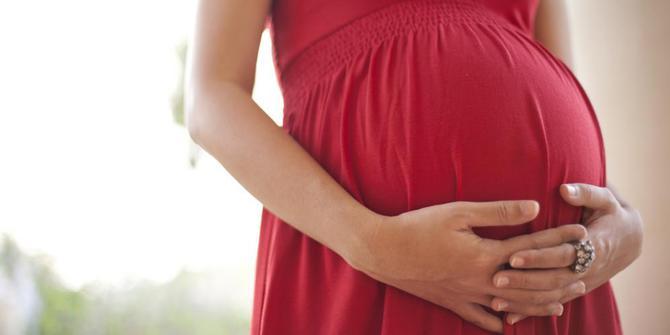Contents:
- Medical Video: Endometriosis
- Endometriosis during pregnancy should not be underestimated
- Risk of pregnancy complications caused by endometriosis
- Miscarriage
- Placenta previa
- Premature delivery
- Could labor be smooth when having endometriosis during pregnancy?
- Things you can do to reduce the effects of endometriosis during pregnancy
Medical Video: Endometriosis
Every woman wants to have a healthy pregnancy. On the other hand, it cannot be denied that pregnant women are susceptible to various health problems during pregnancy. One of the most common problems with pregnancy is endometriosis. What is the effect if the mother experiences endometriosis while pregnant? Are there risks for developing baby in the womb?
Endometriosis during pregnancy should not be underestimated
Endometriosis is the growth of tissue lining the uterine wall (endometrium) outside the uterus, most commonly in your fallopian tube. This network will still function like normal uterine tissue, it will also decay into blood during menstruation. But because of the growth outside the uterus, blood cannot flow outside the body and get trapped inside. This condition can cause inflammation which results in excessive pain during menstruation.
Endometriosis generally makes it difficult for women to get pregnant. Even so, there are often women who experience endometriosis while pregnant. Increasing the hormone progesterone during pregnancy can stop the symptoms of severe pain temporarily, because progesterone stops the formation and decay of the endometrium.
However, the hormone estrogen also increases at the same time. This hormone can trigger endometrial growth so that pain due to endometriosis during pregnancy may still be felt by some women.
Pregnancy hormone factors, physical health, and the severity of symptoms of endometriosis experienced by women before pregnancy can also affect the onset of symptoms during pregnancy. Endometriosis is the cause of chronic inflammation in the body, which can increase the risk of pregnancy problems experienced by pregnant women. In addition, the effects of endometriosis will return when you are no longer pregnant and breastfeeding.
Risk of pregnancy complications caused by endometriosis
Inflammation and damage to endometrial tissue caused by endometriosis, along with hormonal changes during pregnancy, can increase some of the risks of pregnancy complications. Among them:
Miscarriage
A number of studies have shown that the risk of miscarriage tends to be higher in women who have endometriosis during pregnancy. Miscarriage caused by endometriosis can occur at any gestational age, but is common at a very early age or around less than 12 weeks of gestation.
Miscarriage cannot be prevented. However, it is important for you to recognize signs of miscarriage to watch out for to get medical attention immediately and prevent further complications. Common signs and symptoms of miscarriage are severe vaginal bleeding, severe stomach cramps, and low back pain.
Placenta previa
Placenta previa occurs when all or part of the placenta covers part or all of the cervix (cervix) of the mother during the final months of pregnancy before the birth of the baby. Placenta previa increases the risk of tearing the placenta and causes bleeding before and during the birth process, which can endanger the mother and baby.
If you have endometriosis during pregnancy, your risk of experiencing placenta previa can increase. When bleeding during childbirth results from placenta previa, you will need to immediately get a blood transfusion and undergo a caesarean section.
To avoid this risk, your doctor may advise you to avoid activities that require a lot of physical activity including, sexual intercourse and exercise.
Premature delivery
Pregnant women who experience endometriosis are at high risk for preterm delivery under the age of 37 weeks. Premature labor can cause babies born with low weight (LBW) and various disorders of growth and development. Premature babies also generally require intensive medical treatment immediately after birth.
Therefore, pay attention to some of your signs and symptoms that you might be giving birth prematurely, such as:
- Repeated contractions such as hardening of the muscles around the abdomen that can be accompanied or without pain.
- Changes in vaginal fluid such as mucus that is clear or accompanied by blood.
- Sudden pressure in the pelvic area.
Could labor be smooth when having endometriosis during pregnancy?
Pregnancy with endometriosis is a condition that is very risky for many health complications. However, pregnant women can still have a safe pregnancy and give birth safely until the end of the period. To achieve this requires extra-strict supervision and regular consultation with the doctor. Immediately report to the doctor if you experience unusual symptoms or when experiencing signs of the above complications as early as possible.
Things you can do to reduce the effects of endometriosis during pregnancy
Endometriosis can usually be treated with hormone therapy, but this method of treatment does not apply to pregnant women.
Endometriosis during pregnancy can only be overcome by alleviating the symptoms that arise, such as by taking painkillers to reduce the pain. You also need to consult the use of this drug with your doctor regarding the frequency and dose of the drug that is safe.
Some other things can be done such as relaxation by taking a warm bath, preventing constipation by eating fiber-rich foods, and light exercise such as walking and yoga to deal with back pain during pregnancy.











